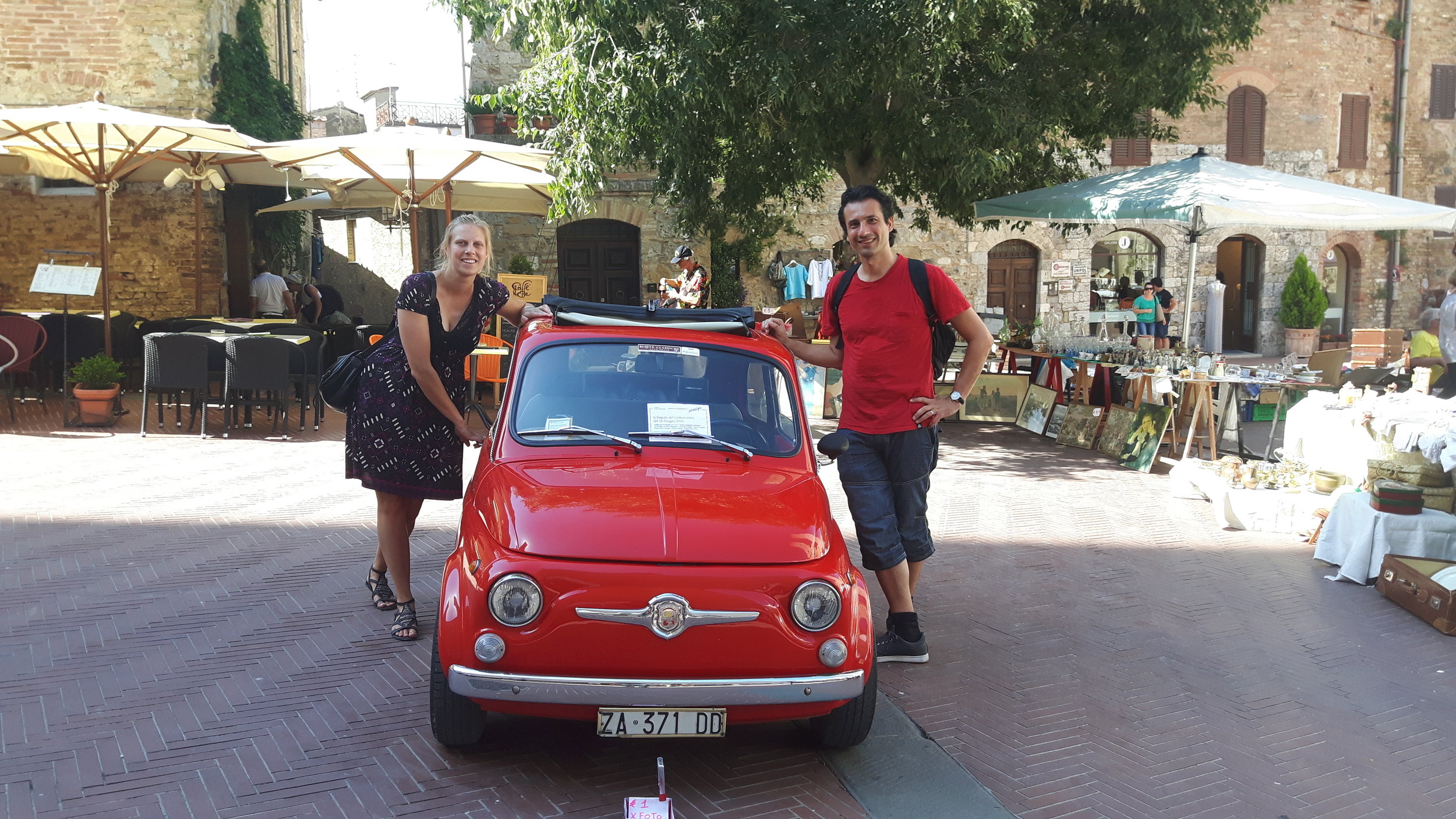Italian Lessons with Luca Lupo - Interview - Part 2
/Meet Luca, one of my favorite people. He’s a great teacher and a very kind person. After my move to Italy, I started taking online group classes with him. The classes really helped me to progress and more importantly, to start speaking in a friendly group setting. Whenever my expat friends ask me how I am learning Italian, I always refer them to Luca. He teaches about 14 expats here in Guardia which is a big testament to his teaching skills.
5. What do you wish language learners would do more often - other than practice?
One common mistake people make is to translate literally from their native language. Like using long sentences or expressions that don’t mean anything translated into another language. I always suggest not to think this way, but instead make easy, short sentences from scratch. The communication will be easier that way, and little by little you will get more training so you won’t even need to think about every sentence.
Another problem is impatience. Studying a language is a long process and it’s important never to give up. I had some students who stopped studying even though they were good and made continuous progress. Understanding Italian gives you access to history, art, food culture, music, and religion. Sometimes you miss many opportunities because of a lack of patience, and that’s a pity. The more you study, the faster you improve.
6. What are your favorite books, movies, or apps for learning Italian?
I am currently using Il Nuovo Affresco Italiano as a textbook for my lessons and my own material. YouTube is a great site for different grammar explanations and videos. There are many apps, I like Babbel and Duolingo. With Babbel you can study mostly grammar, Duolingo is better for learning new words and word order. Alma Edizioni writes easy books that are fun to read.
7. How does someone get over the fear of speaking and making mistakes?
Always remember that Italians are quite patient with people who are trying to learn their language. Since they usually don’t know a lot of English, they surely don’t expect you to speak perfect Italian. Know that everyone makes mistakes in the beginning. One tip is to find situations and people who have the time and patience to listen to you. I would avoid speaking with a Milanese businessman on Monday morning, but I would surely try talking to an old man or woman in the village.
8. What do you find are language learners' biggest stumbling blocks and what are the best ways you’ve found for them to overcome them?
The biggest stumbling block is for sure the lack of vocabulary, that is why it’s really important to learn new words from the beginning. If possible, 5 words a day or 15 words a week. Put the words in categories at the beginning and when studying them, use them in sentences. Another hard thing is the use of verbs. We have so many verb forms you can’t even imagine.
But you don’t have to use all of them. You need to take it step-by-step. In the beginning, we concentrate on the present tense, and I wait until the student is good enough to take the next step. Of course, it can be strange at the beginning to use the present tense to speak about the past, but I find it to be the best solution to make yourself understood at an early stage.
Read Part 1 of the interview here
Read Part 3 of the interview here
I’d love to hear your stories and what has helped you. Leave your comments below. If you’d like to reach Luca, please contact him here: http://www.facebook.com/luca.lupo.52







